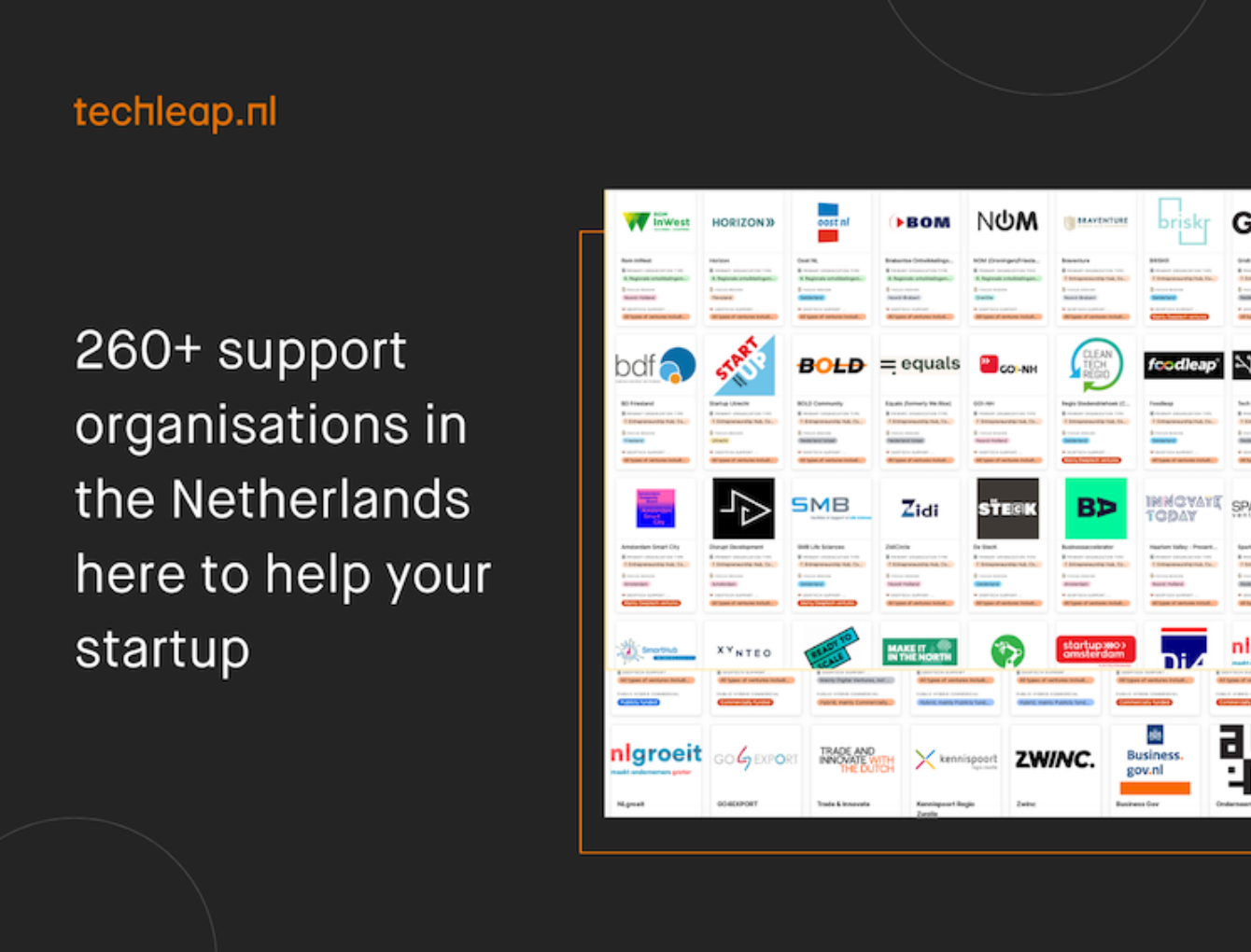July 6, 2023
Scaling breakthrough technologies: 260 support organisations in The Netherlands

Within our database, we identified 11 types of organisations that offer direct support like entrepreneurial guidance, funding access, business support, knowledge support, space, community, or a combination of these services to deeptech founders in the Netherlands.
Download this overview here with clickable logos.
In the early stages of the journey, academic institutions play a crucial role in providing guidance, business support, and funding through Entrepreneurship Education (1), Knowledge Transfer Offices (KTOs) (2), and Incubators(3). Commercial accelerators (4) and Venture builders (5) offer similar support. As the journey progresses, founders can find regional support and funding through Regional development agencies (ROM’s) (6) connected to a wide range of entrepreneurship communities and events (8) and physical buildings and campuses (9). On a national level specific Thematic boosters (10) and Thematic hubs (11) drive growth on specific technologies or sectors.
It is important to note that our analysis focuses primarily on support, omitting VC firms, grants, funds, and broader public and corporate organisations, which are only partially represented in our database.
By filtering on “organisation type” you can find the different types in the database.
Deeptech founders build breakthrough technologies, often originating from IP of Academic institutes. We see that university clusters have become strong hubs for deeptech founders. We see examples such as the strong centralised organisation of Novel-T in Twente compared to a more decentralised ecosystem around TU Delft. Both are strong networks, andt in forthcoming research we want to learn what factors create most value to founders. In the database when filtering on a City or region find the organisations that are close to your city.
By filtering on “city” you can find the organisations around these academic clusters.
The support ecosystem comprises numerous regional entrepreneurship communities and thematic hubs. As a venture it is relevant to get support close to your roots as well as being wider connected to your specific thematic domain. However, when regional entrepreneurship goals overlap with national or thematic clusters it can create friction between organisations. The number of these organisations makes us question their effectiveness and whether they are making use of the advantages of scale.
By filtering on “region” you can find the organisations in your region or filter on “theme” for your specific theme.
Founders encounter appealing websites and support programs. Determining and comparing the value and quality of these initiatives from an external perspective remains challenging. Our analysis reveals that most of the support organisations and initiatives in the ecosystem receive public funding or support. Evaluating whether this public funding adequately benefits both supporters and founders becomes imperative.
While the database itself cannot rectify the support system, it serves as a valuable tool to guide and propel the ecosystem forward. Accessing the database provides insights into the jungle of support, helping founders identify and navigate available resources. We encourage you to explore the deeptech support database.
For deeper insights or to offer input, collaborate, or add additional data and organisations, access the database on Airtable via this link (NB: it requires an Airtable login).

 Sport, sustainability and steering through hypergrowth with Mette Lykke, CEO...
Sport, sustainability and steering through hypergrowth with Mette Lykke, CEO...